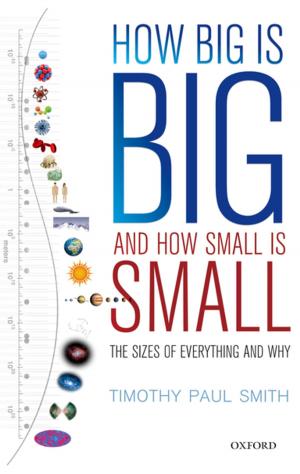Technological culture, science and innovation: Trends in technology
Nonfiction, Science & Nature, Technology, Social Aspects, Science, Other Sciences, Philosophy & Social Aspects| Author: | Julio E. Rubio, Elda C. Morales, Ntumbua Tshipamba | ISBN: | 9786075013107 |
| Publisher: | Tecnológico de Monterrey | Publication: | June 30, 2014 |
| Imprint: | Language: | English |
| Author: | Julio E. Rubio, Elda C. Morales, Ntumbua Tshipamba |
| ISBN: | 9786075013107 |
| Publisher: | Tecnológico de Monterrey |
| Publication: | June 30, 2014 |
| Imprint: | |
| Language: | English |
Technology is the most distinctive characteristic of a knowledge society; however, technology is not stable, and it is defined by change and speed. Furthermore, the complexity of the sociotechnical systems that generate technology is not accessible to the average citizen. For this reason, the goal of this book is to assess changes in technology and present this analysis using language that helps an interested reader understand the direction in which technologies are progressing as well as their economic, social and cultural impact.The question we ask in this book is about the social impact of science and technology. Far from being a merely academic question, asked simply to fill the void of epistemic curiosity, we believe that this question speaks to the core of our labor and our being, inciting us to suspend judgment and examine the scope, relevance and impact of science and technology in different spheres of society, from a new perspective.“Technological Culture, Science and Innovation” provides the public with material that is valuable, both academically and culturally. Far from being limited to an expert public, the texts that are published here have the advantage of adopting a language accessible to any person that is educated and curious about the existence and the historical development of the knowledge society. One of this work’s greatest achievements is offering clues to solving problems that matter to citizens, academics, politicians and business people.
Technology is the most distinctive characteristic of a knowledge society; however, technology is not stable, and it is defined by change and speed. Furthermore, the complexity of the sociotechnical systems that generate technology is not accessible to the average citizen. For this reason, the goal of this book is to assess changes in technology and present this analysis using language that helps an interested reader understand the direction in which technologies are progressing as well as their economic, social and cultural impact.The question we ask in this book is about the social impact of science and technology. Far from being a merely academic question, asked simply to fill the void of epistemic curiosity, we believe that this question speaks to the core of our labor and our being, inciting us to suspend judgment and examine the scope, relevance and impact of science and technology in different spheres of society, from a new perspective.“Technological Culture, Science and Innovation” provides the public with material that is valuable, both academically and culturally. Far from being limited to an expert public, the texts that are published here have the advantage of adopting a language accessible to any person that is educated and curious about the existence and the historical development of the knowledge society. One of this work’s greatest achievements is offering clues to solving problems that matter to citizens, academics, politicians and business people.















